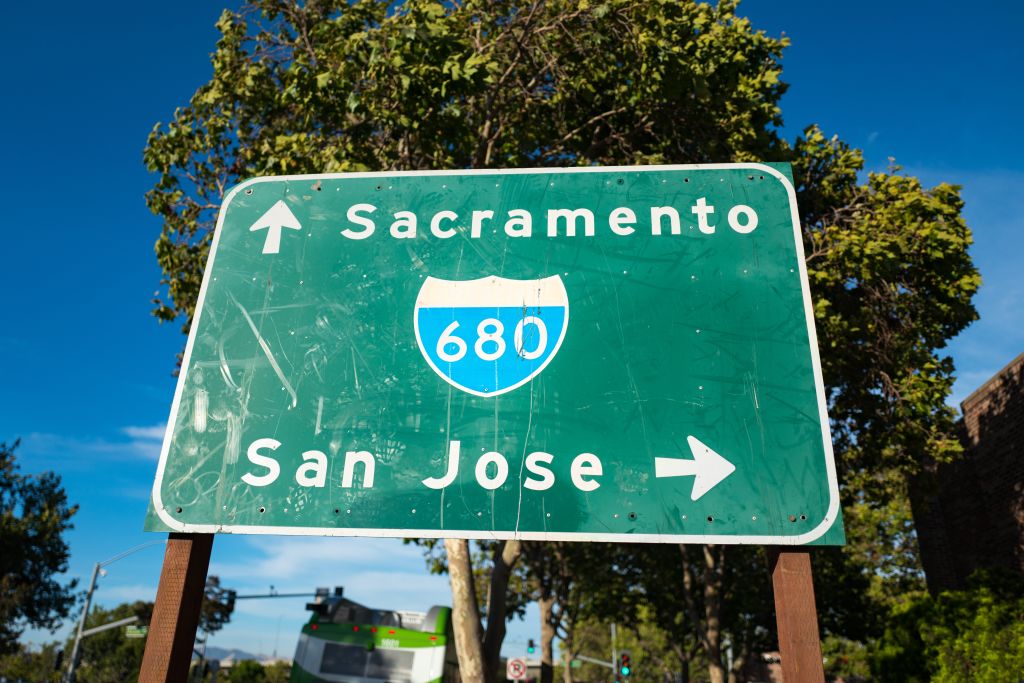There are several redistricting maps under consideration in San Jose, but local Latino leaders believe only one will uplift all voices -- especially historically marginalized voices -- and that is the Unity Map.
On Monday morning, representatives from several Latino and social justice organizations gathered to release an open letter urging the Citizen Redistricting Commission and elected to officials to "push back against voter suppression targeting Latinx neighborhoods and communities of color" by adopting the San Jose Unity Map.
They believe the other maps would reduce the voice of Latinx residents in downtown by as much as 7 percent and reduce the voting power of Black, Latinx and Asian neighborhoods across the city's most diverse areas by 2 percent.
"We are at a critical moment in our city and county's future," said Maria Noel Fernandez, Deputy Executive Director of Working Partnerships USA. "It is time for us to not just talk about the importance of equity and inclusion but do everything possible to ensure the voices of those historically marginalized communities of color, working people and renters are lifted up rather than diluted."
Get a weekly recap of the latest San Francisco Bay Area housing news. Sign up for NBC Bay Area’s Housing Deconstructed newsletter.
Fernandez and allies said they are especially worried about the community map, which would push five Eastside neighborhoods, which are primarily Latino, into other districts.
Washington Guadalupe, Spartan Keyes, Goodyear Mastic and Gardner neighborhoods would be removed from District 3 and moved into "less diverse areas in North San Jose," the open letter reads.
"These neighborhoods are the most Latinx neighborhoods in the city," Fernandez said. "About approximately 15,000 Latinx residents (would be) pushed into other districts -- their voices being diluted."
Local
The problem with that, leaders said, is that a lack of proper representation results in a lack of proper resources - impacting investments into parks, community centers, public safety and many other public services.
But some advocates of the community map, for example, believe race shouldn't be a determinant when it comes to redistricting.
Chris Chaffee, from redistricting partners said to do so would be a violation of the Federal Voting Rights Act during an Oct. 28 community meeting.
"I think if the sole focus is like citizen voting-age population, or census ethnic population, then you're getting very close to kind of breaking all the Federal Voting Rights Acts," Chaffee said.
But to Fernandez and other leaders, it's not necessarily about race, but voice.
"Our efforts are intended to yield an equitable representation for our community," said Andres Quintero, Chair of the Redistricting Committee of Latino Leadership Alliance. "We're not asking for anything out of the ordinary. We're asking for what the Voting Rights Act demands and guarantees."
Many said opposition to the Unity Map was based in racism.
"Each of the meetings, frankly, are more painful than the other," Fernandez said. "We have heard misinformation and even remarks that reek of racism, thinly veiled."
Examples of that racism, Fernandez said, was when residents voiced that they did not want neighborhoods and demographics to change or when others urged commissioners to essentially "forgive and forget" decades of redlining and intentional disenfranchisement.
"Predominantly Latino and people of color have been excluded and have been not a part of the process and this is not just by chance, but by design," Fernandez said. "And a lot of that was because of redlining and because of the way that representation was done... so we can't plan for something better if we haven't looked to the past to learn what hasn't worked," Fernandez said.
Proponents of the Unity Map also said ensuring equitable representation was especially important as the county continues to recover from the pandemic.
Latino residents in San Jose and Santa Clara County were disproportionately impacted by COVID-19, not only in case count and deaths, but also economically. For example, nearly 30 percent of Latinas lost their jobs while for White women, it was 9 percent, Gabby Chavez Lopez of Latina Coalition of Silicon Valley said.
In California, one out of every three undocumented Latinos lost their jobs. And in the Silicon Valley, Latinos earned only 33.5 cents for every dollar earned by a white man, Lopez continued.
"The most acute wage gap in the nation for Latinas exists here," Lopez said.
She continued that because a fifth of the state's population is comprised of Latinas, "when we uplift Latinos, we uplift families, and we uplift society."
The coalition's open letter was signed by the Latino Leadership Alliance, the Latina Coalition of Silicon Valley, La Raza Roundtable, Silicon Valley Rising Action, La Raza Lawyers Association, Sacred Heart Community Service, SOMOS Mayfair and the local chapter of the NAACP.
They urged residents to participate in the redistricting commission meetings taking place Monday, Nov. 8 at 6 p.m. and Wednesday, Nov. 17 at 6 p.m. The Monday meeting can be accessed online at https://sanjoseca.zoom.us/j/92742607814.
"The effects of redistricting last generations," Fernandez said. "This is once in a generation opportunity we have here to make sure that we're ending voter suppression and making our democracy what it should be."



